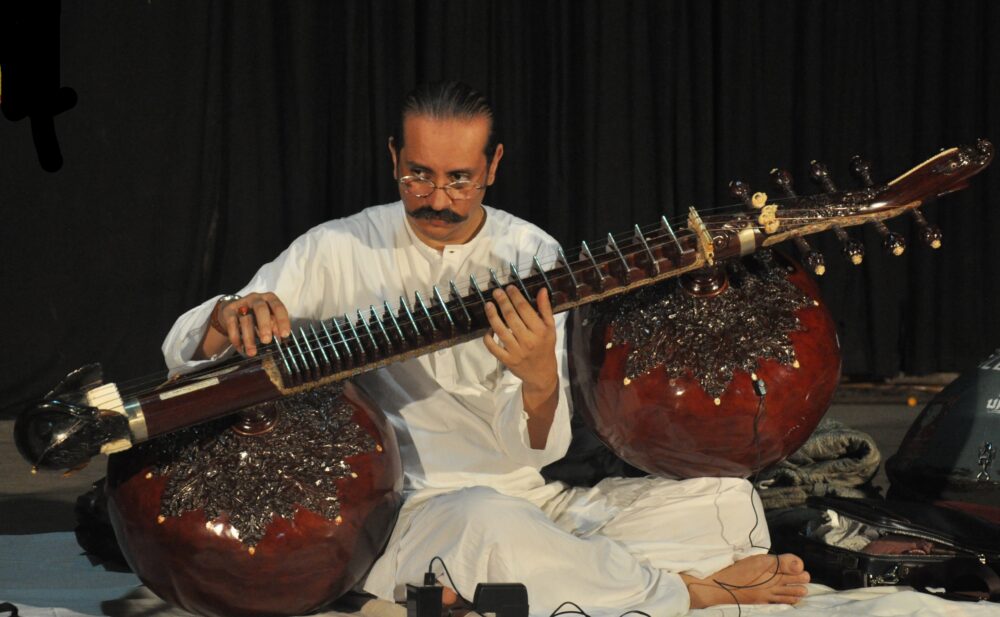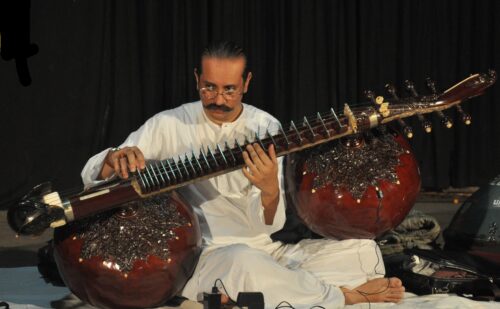Mohi Bahauddin Dagar

© Mohammed Anas Islam-Khan
Born into the illustrious Dagar family of Dhrupad musicians in 1970, Mohi Bahauddin Dagar first began his foray into In- dian Classical Music at the early age of seven, training on the Sitar under the expert tutelage of his mother, Smt. Pramila Dagar. Once he‘d finished three years of initial training, he received brief instruction on the Surbahar and was later in- troduced to the Rudra Veena by his father, Ustad Zia Mohiuddin Dagar; a legendary Rudra Veena Maestro, and his uncle, Ustad Zia Fariduddin Dagar; a renowned Indian classical vocalist from whom he later also learnt vocal music. In 1990, Mohi Bahauddin received the Lakhanpal Foundation Fellowship for two years.
At the early age of twenty, Mohi Bahauddin formally stepped onto the stage and made his mark in the industry as a classical performer. He is a unique artist who has played for diverse and varied audiences in India and across the world. A cross-platform performer, he has made regular appearances on television and radio networks. His music has been recorded by Music Today (India), Makars (France), Ragini Sutra (India), Sense World (London), and India Music Archives (USA). Mohi Bahauddin was also granted the Nana Shirgaokar Research Professorship at the University of Goa for three years from 2013 to 2015. Mohi Bahauddin continues to receive able guidance from the esteemed Pandit Pushpraj Koshti, a senior disciple of Ustad Zia Mohiuddin Dagar and Ustad Zia Fariduddin Dagar. In taking the Dhrupad tradition to future generations, Mohi Bahauddin teaches both vocal and instrumental forms of music to students at ‚Dhrupad‘; a Guru-Shishya Parampara styled Gurukul established by his father in 1982 at Palaspe, near Panvel. He firmly believes that teaching is integral to his own learning and growth as a mu- sician . For him this search is limitless. Any given tradition can only develop with a deep understanding and realisation of things as they are, and of the way that things will be in the future. In this matter commitment, discipline and clarity are some of the key components.
